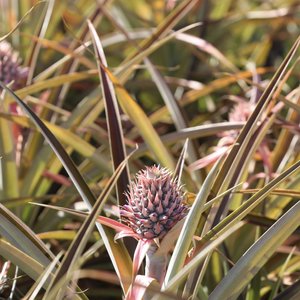Now in its third installment, Pacific Business News’ annual Startups to Watch features young companies that are poised to have a big year.
This year’s list spans industries including agriculture, consumer packaged goods and technology. But if there is one thing these companies have in common, it’s that they are working to make things better — whether that thing is an everyday experience, behavioral health care, local agriculture or other areas. Tech startup 40hammocks, for instance, has created a way to simplify group trip planning, while Motivity offers a new tool for behavioral therapists to treat children with autism. Ag enterprise Kohala Food Hub aims to bolster Hawaii’s food system, and Hawaiian Soda Co. wants to provide consumers with a local, natural beverage alternative.
To compile this list, PBN considered recommendations from local incubator and accelerator programs, the recent growth and accomplishments of each business, and their plans for 2024.
The eight companies on this list have all already achieved significant accomplishments so far, and we can expect to see further growth and more notable developments from each in the year ahead.
Hawaiian Soda Co.
Hawaiian Soda Co. might be a new company, but co-founders Caesar and Gina Ho trace its inspiration back to Caesar’s childhood, when his father would take him to restaurants and instead of a typical soft drink, they would ask for a mix of tropical juices topped with soda water.
“We wanted to capture the nostalgic flavors of Hawaii and make a delicious sparkling beverage that we could feel good sharing with our ohana,” Caesar and Gina wrote in a joint email to PBN. “…We’ve always been fascinated by how flavors can evoke memories and emotions. … Our goal was to create a beverage that stood out for its natural ingredients and authentic flavors.”
The Honolulu-based Hawaiian Soda Co. creates beverages with no added sugar, artificial ingredients or preservatives, with flavors that include lilikoi lychee, passion orange guava and pineapple citrus.
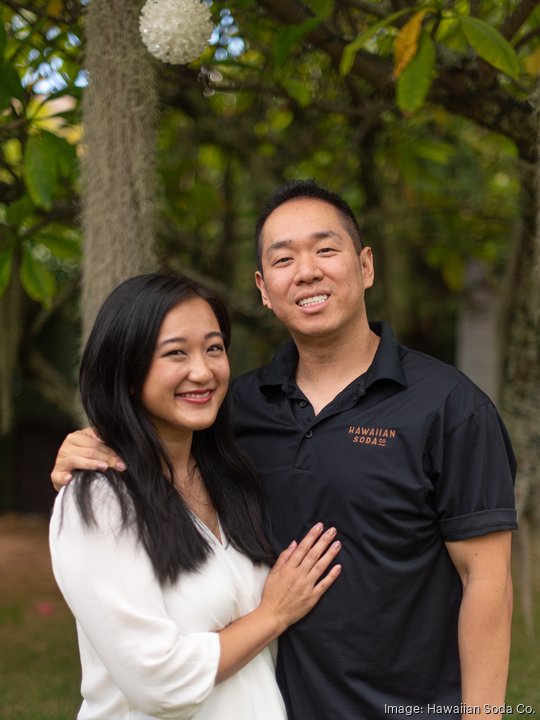
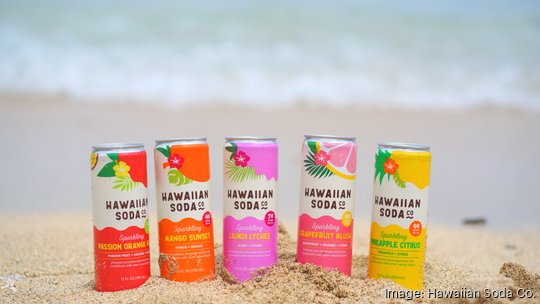
The couple said they started the venture through self-funding. The pair began research and development in 2020 and launched the product in March 2023. By July of that year, Hawaiian Soda hit shelves at Foodland. Now, the brand can be found in 200 retail locations throughout the state, including 7-Eleven, Don Quijote, Down to Earth, and H Mart, among others, as well as food service locations and hotels. Hawaiian Soda was part of Mana Up’s most recent accelerator cohort, and its product are also available online via House of Mana Up’s website.
Amid that growth, the Hos said their proudest accomplishment has been “successfully capturing the essence of Hawaii in our sodas without compromising on our commitment to natural ingredients.”
“It's not just a fizzy drink; it's an invitation to indulge in the unadulterated joy of Hawaii's natural flavors. … Seeing the positive response from our customers and the growing demand for our sodas has been incredibly fulfilling.”
This year, the Hos said they plan to introduce Hawaiian Soda to the Mainland, with plans to launch on the west coast, as well as expand e-commerce operations.
“Looking ahead to 2024, we are excited to introduce the Mainland to our taste of paradise. Hawaiian Soda Co. is more than just a beverage company; we are ambassadors of the aloha spirit, dedicated to sharing a bit of Hawaii with the world.”
Maui Chili Chili Oil
When the Covid-19 pandemic hit, husband-and-wife Deron and Kit Furukawa were both out of work — Deron was laid off, and Kit’s escape room establishment had to close due to the lockdown — so they began spending more time in the kitchen, experimenting with dishes.
But when they went looking for a chili oil to complement their food, they couldn’t find one they liked. So instead, Deron began concocting his own made with Szechuan peppers, crunchy garlic and Maui onion.
For Christmas in 2020, they shared their creation as gifts — and it was a hit.
“It was this feedback and strong encouragement from friends and family that gave us the confidence to pursue it as a business,” they wrote in a joint email to PBN.
They launched Maui Chili Chili Oil in July 2021, starting off at an artisan market on Maui, later landing shelf space at brick-and-mortar retailers including Mana Foods, Tamura’s and Foodland. Further growth followed in 2023, in what the pair called a “milestone year” for the company.
“We ended last year with more than 40 store accounts statewide and stronger sales online, which increased our sales by 300%,” the Furukawas said.
One thing they attributed the success to was being part of Mana Up’s Cohort 8, which they said helped them gain "the right exposure and connections to level up.” Last year, they also acquired their own kitchen warehouse, which they said provides much-needed production and storage space.
The Furukawas said the venture has been self-funded, but they also noted that they have a lot of support from family and friends who have helped with everything from donating kitchen equipment to promoting the business.
Of course, they pointed out, 2023 also was “marked with some of the most extreme lows we have faced as a community brought by the devastation of the wildfires.” The company donated a portion of its sales to recovery programs, and the couple themselves helped organize resource fairs, relief drives and fundraising campaigns.
As for what’s next, the Furukawas said they plan to introduce Maui Chili Chili Oil to new markets, both on the Mainland and internationally.
“Our goal is to make sure there’s a bottle of Maui Chili Chili Oil in the middle of every potluck table,” Deron and Kit said.
“Our objective is to infuse joy in food. … We want to supplement Hawaii’s rich food culture and bring this joy in every bottle as we take on new heights in 2024.”
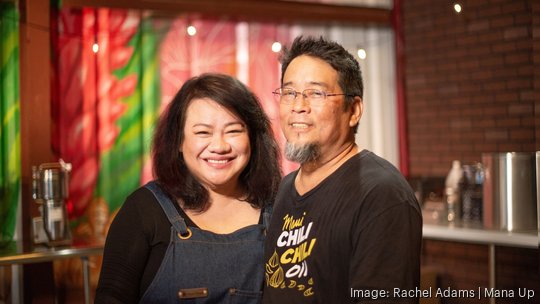
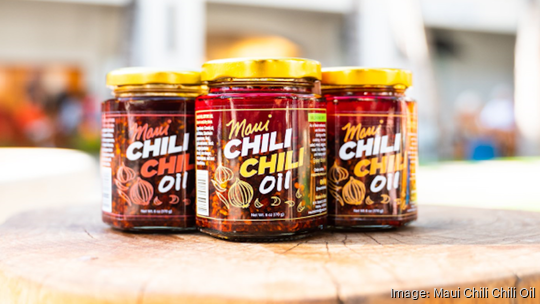
Hawaiiverse
Now a platform to connect consumers with Hawaii-owned businesses, Hawaiiverse initially had a very different focus. It started in 2016 as a Facebook group that would post scenic sites from around Hawaii Island. But when the Covid-19 pandemic hit, the Hawaii Island-based team pivoted the page to help local businesses.
“We saw local businesses struggling and even closing. Each member of our team was born and raised on the Big Island, and we have a close connection with the small business community,” said CEO Jared Kushi, who previously co-founded another startup, biotech company LifeDNA, and runs a performance marketing and design agency called Koosh Media. “…Our goal was to help as many of them survive and thrive with our knowledge of technology and marketing.”
Since its 2020 pivot, Hawaiiverse has launched a coupon directory of local businesses, created a mobile app, and launched an online store featuring curated local products. Kushi said the platform now supports 1,100 local businesses across the state. He said the initiative reaches more than 100,000 people.
“Each development was undertaken with the singular intention of giving a platform to our local businesses,” Kushi said.
In 2022, Hawaiiverse earned the People’s Choice of Startup Paradise of the Year in Hawaii Venture Capital Association’s annual Entrepreneur Awards.
Most recently, Hawaiiverse launched its own card game called Moke Gabs, and opened its first physical retail location at Honolulu Coffee Company’s Experience Center in Honolulu.
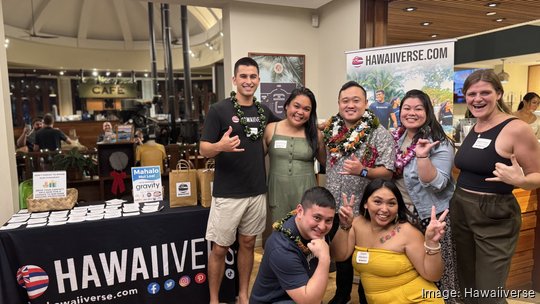

The other main partners in Hawaiiverse include Callie Martin, who serves as COO, and Taylor Martin, the creative director. Kushi said the venture has been 100% bootstrapped.
“Our main sources of funding are selling our local vendors’ products online on our website and mobile app,” he said. “We also produce our own products like the card game … and Hawaiiverse merchandise. We also have B2B affiliate partner deals, physical retail store sales, donations and in-person pop-ups.”
Hawaiiverse has big goals for 2024. In the first quarter, Kushi said it plans to launch a non-profit arm that will allow the organization to create educational opportunities and additional resources. These new projects, he said, will include a facility called the Hawaiiverse Hub, which will feature a fulfillment center, coworking space and a retail store.
“This will help us provide the best resources and opportunities for our vendors at an optimal cost,” he said.
Another project, called Hawaiiversity, “will focus on creating a program to educate, guide and support any local vendors of all sizes from ideation to scaling,” Kushi said.
This year, with these new projects as well as its existing ones, Hawaiiverse aims to double the number of local businesses it supports.
Kohala Food Hub
With the goal of growing Hawaii’s food system and increasing access to local food, Kohala Food Hub connects people and businesses to locally grown produce through multiple channels including an online market, a multi-farm CSA, wholesale and free community food distributions.
Director Maya Parish told PBN that the Hawaii Island food hub provides “essential services for both local food producers and [the] community, and address[es] a real need in building a more sustainable and resilient regional food system.”
The organization began as a project of the Hawaii Institute of Pacific Agriculture in 2019, but Parish said “due to Kohala Food Hub's considerable growth in sales and scope over the last two- plus years,” it has since spun off and, as of Jan. 1, is operating as its own autonomous nonprofit. The organization is funded through a mix of earned revenue, private foundations, and individual donors, as well as local and federal government grants.
Parish joined the organization in 2021, at which time she said it had a network of 23 local food producers. Now, it works with 116 producers — and growing.
“The exponential growth in the number of local food producers we provide revenue streams to through our services and the markets we've created and grown … is incredibly edifying,” she said.
In 2024, Kohala Food Hub plans to roll out a number of new projects, including a mobile market that Parish said will “reduce transportation and internet access barriers to accessing our services, and serve as a mobile pick-up location for CSA shares and online orders.” In addition to items available via the online market, the mobile market will introduce additional products including fresh-squeezed juices and grab-and-go food, “all made with locally grown and raised produce and proteins,” Parish said.
The organization is also constructing a commercial kitchen that will serve as the production facility for the mobile market, as well as a place for Kohala Food Hub to launch its own value-added product line of fresh juices, dehydrated fruit and more. It will also serve as an incubator space for aspiring food entrepreneurs.
“The space will be rented out at affordable rates to individuals and organizations in our community to support our local food economy. Our staff will provide guidance and support to farmers and aspiring food businesses through the regulatory process to ensure they are in compliance in terms of processes, permits and labeling,” Parish said.
In addition to its new projects, Kohala Food Hub will also scale its existing endeavors.
“We plan to open a Waimea pick-up location in 2024 and scale our customer base and producer network to meet the demand that we see exists in our region in abundance for healthy, locally grown-and-raised food.”
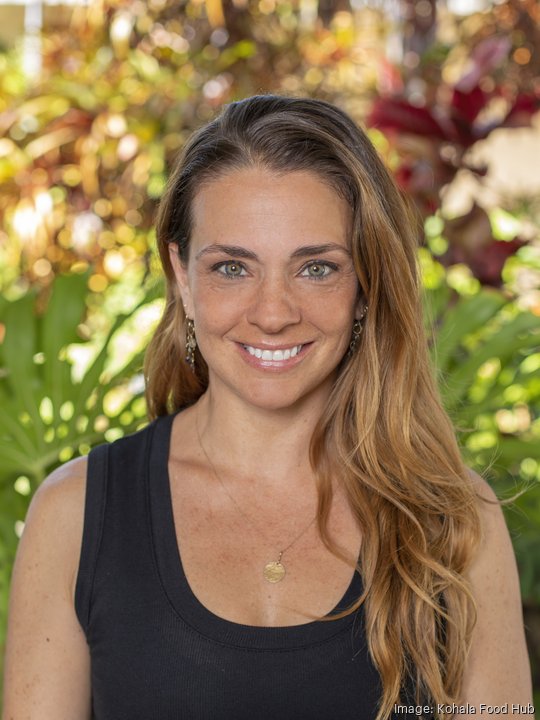
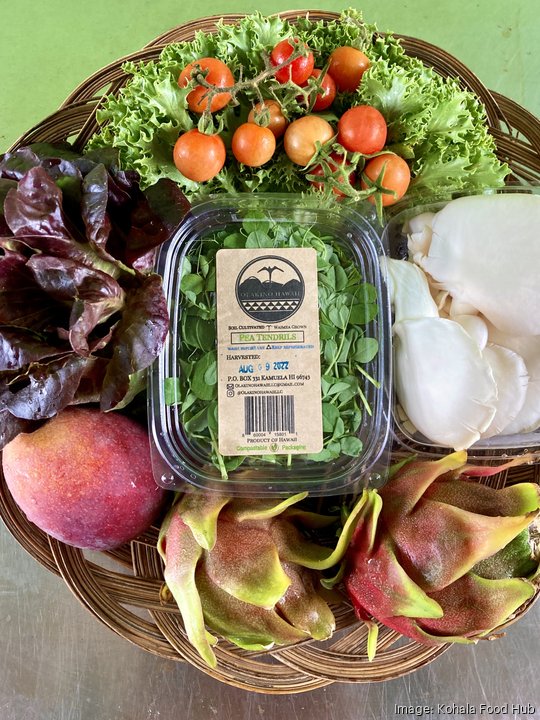
Mappy, Inc.
The impetus for geospatial platform Mappy began on the top of a mountain.
CEO and co-founder Karyn Nolan often goes skiing with her husband, but Nolan, who grew up in California and has lived in Hawaii for decades, can’t always keep up.
“I am not a great skier, and he is excellent — we would go to the tops of these mountains, and he would just disappear,” she said with a laugh. Nolan would be left trying to figure out where he was, while also attempting to navigate different paths on the trail. She started to think about how that experience was similar to experiences she’d had at other places — like trying to find a bathroom at a festival.
“Since my background is in the geospatial industry, I knew there was technology that could fix it. … Whether it was a festival, museum, stadium or ski resort, I saw the potential for using geospatial technology to solve the problem of finding the closest amenities, points of interest, events or people,” said Nolan, who previously ran a startup focused on GPS and surveying equipment that she later sold.
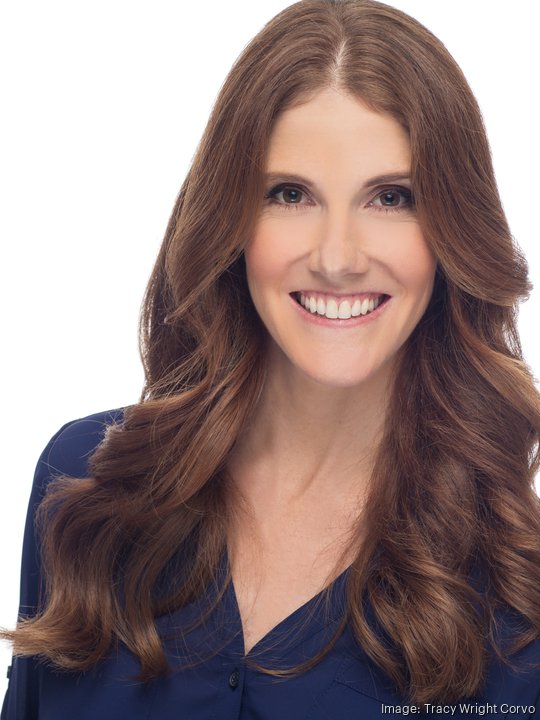
To that end, Nolan and co-founder Kristin Duin began developing Mappy in 2020. The company builds custom maps for venues, attractions and resorts, with the goal of helping them improve operations and the guest experience. Mappy’s developer tools enable venues to embed geospatial capabilities into their native apps, allowing guests to experience the venue on an interactive, operations-based map.
“Our powerful data analytics and visualization tools unlock insights into guest and asset movement patterns, empowering smarter decisions on staffing, signage and resource allocation,” Nolan said.
For the past couple of years, Mappy has been beta testing, raising funding — a mix of self-funding and $1.3 million from a seed round — and it went through Blue Startups’ accelerator in 2022. Now, several ski resorts are going live with the technology. Plus, the company is expanding to other venue types and has contracts in the works with new partners.
“To us, it doesn’t matter if it’s a ski run or a walking path, our tech focuses on location intelligence, which has common applications across venues,” Nolan said. “Ski resorts were our testing ground, but we are excited to move into theme parks, museums and more.”

Motivity
Motivity builds software for behavior therapists who treat children with autism.
“It’s a platform that lets therapists develop treatment plans, assign tasks to staff and caregivers, collect data on child progress, and make informed treatment decisions,” President Rex Jakobovits told PBN.
He said he first came up with the idea during his time working at McKesson Corp., a health care company to which Jakobovits had sold a previous software startup. In his role as a vice president at McKesson, he learned about a type of treatment for people with autism called Applied Behavior Analysis.
“By providing kids with intensive opportunities to acquire skills and adapt their behaviors at an early age, ABA could help supply the missing building-blocks for the development of language and social interaction,” he explained.
“When I saw how hard the therapists were working to maximize the benefits for the kids, I knew I could make a difference by giving them the right tools. So, I launched Motivity with the goal of transforming this practice.”
The company received its first major grant in 2015 and then spent five years developing prototypes and conducting clinical trials. The platform launched in beta in 2020 and had a full public launch in 2021. Now, Jakobovits said, the Honolulu-based company serves more than 350 autism treatment clinics around the country.
“We tripled in size in 2023, and now we’re accelerating on every front,” he said.
He said the growth of the startup has been largely organic, “relying primarily on word-of-mouth buzz from happy customers.”
The company’s primary source of funding has been $11 million worth of Small Business Innovative Research grants from the National Institutes of Health, as well as matching grants from the state through the Hawaii Technology Development Corp.
In 2024, Jakobovits said, Motivity is on track to reach $4 million in annual recurring subscription revenue, and he said it is on a “steady path” to reach $40-50 million in a few years.
“We hope to expand our use of AI to improve data analysis, enhance treatment decisions and assist clinicians with progress reporting,” he said. “We are planning to raise investor capital to accelerate our sales and marketing, and to support our expansion into adjacent markets such as speech and language pathology and other behavioral health applications. I’m looking forward to where this journey takes us next.”
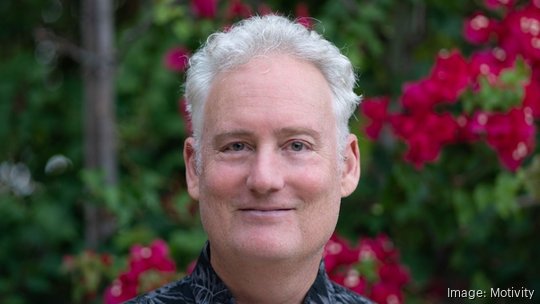
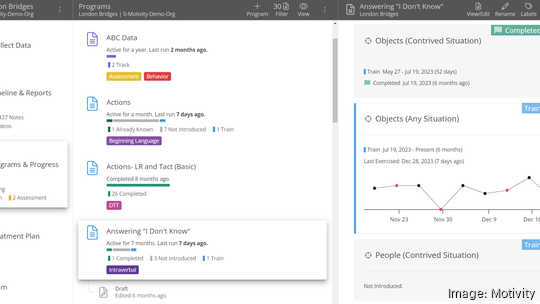
Polipoli Farms
Wife-and-husband team Lehia Apana and Brad Bayless established Polipoli Farms in 2019 and began selling their produce on a part-time basis outside of their day jobs. Apana worked as a journalist and Bayless was a construction manager, but when the pandemic hit and they both found themselves unemployed, they pivoted to farming full-time.
Apana told PBN in an email that Polipoli Farms is located in an area of Maui that “is known for its abundance of fresh water and once-vast loi kalo systems.” She said when they first purchased the land, it was full of invasive species, but as they cleared the area, they discovered traditional loi kalo.
“This was a powerful reminder that this aina is culturally and historically significant, and that Polipoli Farms sits on the same land that fed generations of Native Hawaiians. The original mahiai, or farmers, of this place practiced regenerative agriculture, and we strive to follow in their footsteps,” Apana said.
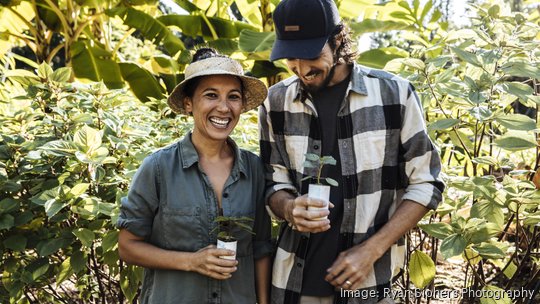
“Our mission is to revive the legacy of this aina and region by feeding the people of Hawaii the traditional foods of Hawaii. To accomplish this, we must think beyond growing more food. This will require establishing smart infrastructure across the food system to ensure locally grown food is reaching consumers.”
Polipoli Farms’ crops include ulu, mamaki, bananas and sugar cane — all grown in regenerative food forests. The couple has also developed a line of value-added products — including dried bananas, and an herbal tea made with mamaki and ulu leaves — that are sold via e-commerce, as well as retail stores, restaurants and hotels across Hawaii.
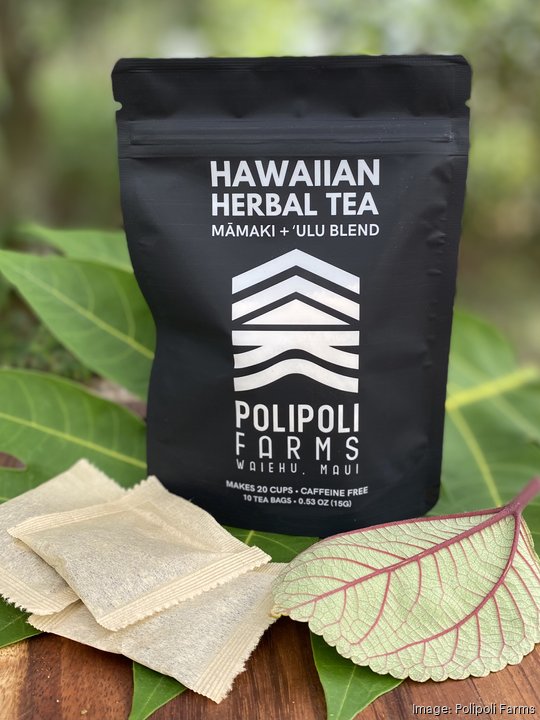
“We started selling our value-added products in January 2021, and our demand quickly outpaced our supply. We are encouraged by our sales rate and have increased our plantings to meet the demand,” Apana said. “Additionally, [last] year we began to aggregate from other farmers, thus increasing our product availability and supporting other local regenerative growers.”
Now, the couple is raising funds to build an on-farm food processing center, where they can scale production of value-added products using food grown at their farm as well as other nearby farms. Apana said funding is a mix of personal investment, farm revenue, private grants and donations, and a partnership with the County of Maui’s Department of Agriculture.
“This project increases access to regenerative and locally grown foods rooted in Native Hawaiian culture,” Apana said. “It also addresses gaps in processing, storage and transportation that plague Hawaii’s food system supply chain. Furthermore, it benefits our natural resources by enabling us to expand our regenerative farming practices and supporting other farmers who are doing the same.”
40hammocks
As the owner and founder of two destination event planning companies in Hawaii, Mina Singson-Brightman has executed hundreds of milestone celebrations with groups from around the world. In that work, she noticed each booking often faced the same challenges, with groups wanting to source the best accommodations within their budget and needing to communicate with each other across multiple time zones.
Singson-Brightman told PBN that she, along with co-founders Kim Andreello and Sebastian Borys, created 40hammocks to solve those problems, with the goal of making “planning and coordinating a group trip easy, engaging and fun, encouraging more people to connect and spend quality time together, creating memories of a lifetime.”
The app, which launched in late 2023, helps users find accommodations, facilitates communication and connects them with discounted rates.
“[We] envisioned and built a seamless group trip planning and booking technology to address all the typical obstacles while ultimately optimizing the group booking experience so the prospect of gathering as a group [is] accessible to more groups and more efficient to navigate,” Singson-Brightman said.
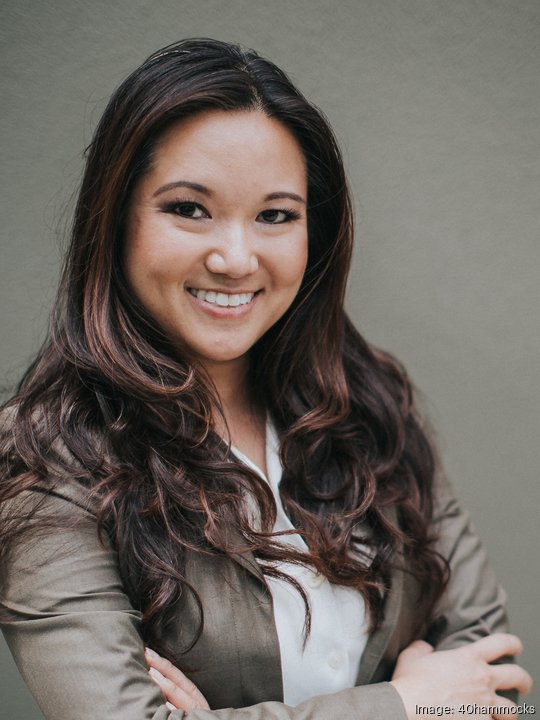

The company has conducted its pilot project on Oahu, and now Singson-Brightman said it is prepared to launch in other destinations throughout the country. 40hammocks is also part of the current cohort of Blue Startups. She said the venture has been entirely bootstrapped by the co-founders so far but noted that they plan to begin fundraising in order to “aggressively execute” nationwide go-to-market campaigns.
“Our goal this year is to have a successful nationwide campaign for 40hammocks as we target more groups traveling to major lifestyle destinations such as Napa Valley, Palm Springs, Las Vegas, Aspen, New York, Miami and more,” she said. “We’d like to start building the brand known for premium group travel experiences within reach, booking thousands of group accommodations and also growing our list of premium hotel partners this year.”






